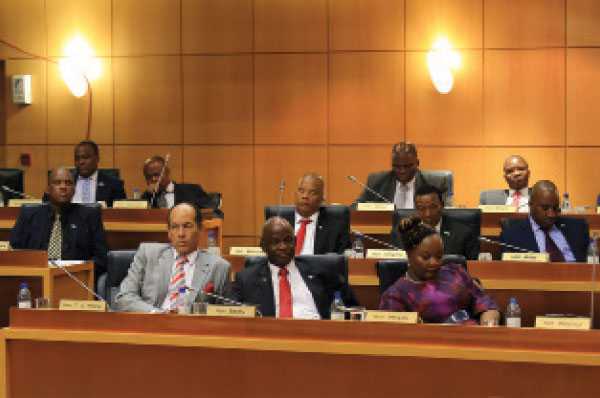Tax hike likely as govt. increases ministries
Atechnocrat well versed in the machinations of bureaucracy has warned government to tread cautiously with its intention to increase the number of cabinet ministers and specially elected MPs.
He says the decision could lead to tax hikes or overtaxing the very limited resources that the country has. Speaking to Botswana Guardian, the technocrat whose identity cannot be revealed said numerous factors would underpin such a huge decision. Among these are establishing the rationale for extra ministers and MPs, the cost and the constitutional provision for such a move. And all these come at a cost to the national purse, he said.
The technocrat explained that for government to have a new ministry, it will have to identify the source of revenue, a matter that could mean overtaxing people and overtaxing resources. This would require a delicate balancing act considering the nature and delicacy of the vulnerability of the budget, he said.
Botswana particularly is constrained by the fact that it is a middle-income country whose wealth or resources are not from the sweat or the brow of the people. He said that this explains why income distribution is so unequal. In other jurisdictions income distribution is derived from people’s incomes and from what they produce, but in Botswana, “We derive our income or revenue from the mines where only few people really work,” he said.
And in any case the people who have set the procedures that the mine must be there and yield and the people who use the pick and shovel to make it produce are very few compared to the whole nation that owns by birth or citizenship those resources, but who have not got direct contribution to it being there.
So we have revenue that is based on a very thin balance because if the Jwaneng or Orapa mine were to flood, our economy will go on its knees. Similarly if there was a slump in the diamond market, our economy will go on its knees because we have not generated a broad based economy”
Merit in a small cabinet
Although not against government decision to increase members of the cabinet, the technocrat however, said there is merit in keeping a small team.
There is also merit in having a team that can handle all aspects of the needs of the government. “We are a small population, and a small economy; because we are a small population, a minister or an MP in India represents a constituency bigger than Botswana population. We cannot compare ourselves with them and say since India has so many ministers we need to do the same”.
Secondly, Parliament should have three aspects namely the front bench which is the executive, the opposition and backbenchers of the ruling party who also represent the aspirations of the people, be they members of the party or merely citizens irrespective of party affiliation.
“This is because Ministers are constrained in expressing those views because they are bound by collective responsibility, but backbenchers are free, and generally much more elsewhere than in Botswana where they seem to be bound by collective responsibility in everything they do or say. But, elsewhere there is freedom of speech where one can easily express themselves without having to say what the caucus has told one to say.”
The technocrat said the backbenchers have a responsibility to show that the party in government - there is a difference between the ruling party and the party itself. “The party is an agent; the executive is bound by executive rules and responsibilities. Even the ruling party it is in its interest to have a very strong backbench that can talk about the aspirations of the party apart from what the government is saying. So you need both good executive and good opposition.”
The technocrat said they will agree with the idea to divide the Ministry of Education Skills and Development (MoESD). It might have been the correct thing to divide because it used to belong to a cluster ministry called Ministry of Social Services, but was later divided into various ministries such as Ministry of Health, Education and so on.
Increase MPs
“I think increasing specially elected MPs is something we should approach with caution because we do not want to make parliament or the executive to be too big for the country, as much we must also be careful to keep government well resourced from the human resources point of view because if we only put financial resources and not put human resources to make it work, then it will fail. So it is a delicate balance, not too big and not too small”.
There is also the question of resources. When one creates a ministry, one must have a minister, the ministry must be staffed by a Permanent Secretary and other staff. The ministry must have housing and a fleet of vehicles.
“You also need to ask what the impact on the budget is,” he said. There is also the balance between the budget and the purpose for which the budget is used; a balance between government revenues used in the budget and the sources of revenues like tax.
“Do you overtax people and therefore restrain production or economic activity because you have withdrawn money from people who are actively using it for production to go and use it for purposes which are not productive. So all the balances have to be taken into account,” says the technocrat.






